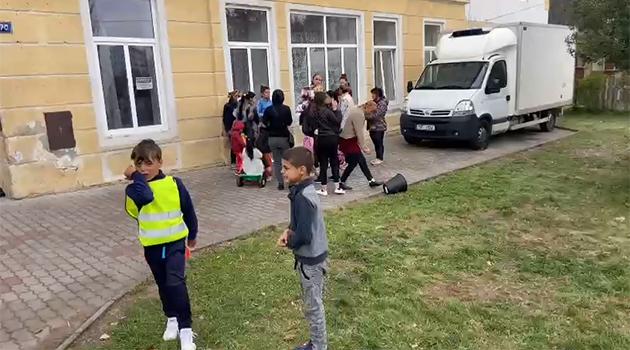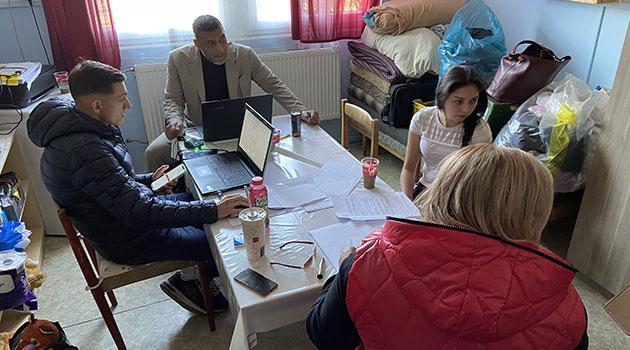Czech housing estate now home to 80 Romani refugees from Ukraine, local Romani community aiding them with food

About 80 Romani refugees from Ukraine have been accommodated in the Hamerský mlýn residential hotel on the Janov housing estate in Litvínov, Czech Republic since 15 April; according to the facility operator, it is not entirely true that not enough food has been made available there. The operator admits that initially just basic foodstuffs were prepared for the refugees, and he also alleges that he was never informed that there would be children in the group.
Additional food for the refugees has been provided by local Romani volunteers. “These people arrived at night between 10 o’clock and two o’clock in the morning, on two buses, and the composition of the group was absolutely diametrically opposed to what we had been told,” the operator described the arrival of the refugees to the Romea.cz news server.
“That evening, in cooperation with the Municipal Police and the local food bank, we procured formula, diapers and basic hygiene supplies. More food was brought with the next bus, so from the first evening we accommodated them here, there was food,” the operator said.
On Sunday, local volunteer Alex Muraškin arrived at the residential hotel to offer aid and also reached out to the director of the Khamoro organization, Emil Voráč. “I told him that there was plenty of food, but of course to increase everybody’s comfort, we would get more food so the people would feel better here,” the residential hotel operator said, adding that basic groceries had been available from day one.
Over the next few days, other Romani volunteers joined in to help the Romani refugees at Hamerský mlýn; Romani residents of the Chanov housing estate, Litvínov itself, or the town of Teplice brought them more groceries, such as meat, potatoes, fruit or vegetables. According to reporter Richard Samko, the Romani mothers with children from Ukraine living at Janov in the residential hotel had been told by authorities to continue on to Germany immediately upon their arrival in the Czech Republic.
The Romani women refused to move on, spending two days at the Main Station in Prague and then living in the red tents at the Regional Assistance Center for Aid to Ukraine (KACPU) in Prague’s Vysočany quarter. They eventually were registered and have been given visas.
“Now we are satisfied here. At first all we had was just basic food, then the Roma came and helped us,” one of the Romani women who is accommodated at Hamerský mlýn told news server Romea.cz.
“They brought us more groceries,” the Romani refugee woman said of the local Romani community. Although the authorities, with the significant aid of non-profit organizations, have managed to accommodate several hundred Romani refugees from Ukraine so far, future arrivals will encounter a lack of available housing and some Romani refugees face bias and discrimination.
Housing equivalent to that being offered to non-Romani Ukrainians is practically inaccessible to Romani refugees from Ukraine at the moment. The authorities have already advised some Romani refugees from Ukraine to leave the Czech Republic.
News server Romea.cz has previously reported on several specific cases of such unequal treatment. At the Main Station in Prague, for example, authorities refused to register a Romani refugee family who later left for Germany.
The automatic segregation of Romani refugees from non-Romani ones at the KACPU in Ostrava has also been reported by Romea.cz. The news server also reported the story of two Romani refugee women with four children who were refused accommodation in the Czech Republic twice in a row; about Czech bus drivers in Slovakia who refused to give a ride to Romani mothers originally from the Kyiv area; and other cases where volunteers do not want to give Romani refugee Ukrainians rides.
Other cases concerned the hostile approach toward Romani refugees from Ukraine and assaults perpetrated on them in Božičany, Czech Republic. Cases of unequal treatment of Romani refugees from Ukraine have also occurred in Hungary, Moldova, and Slovakia.
